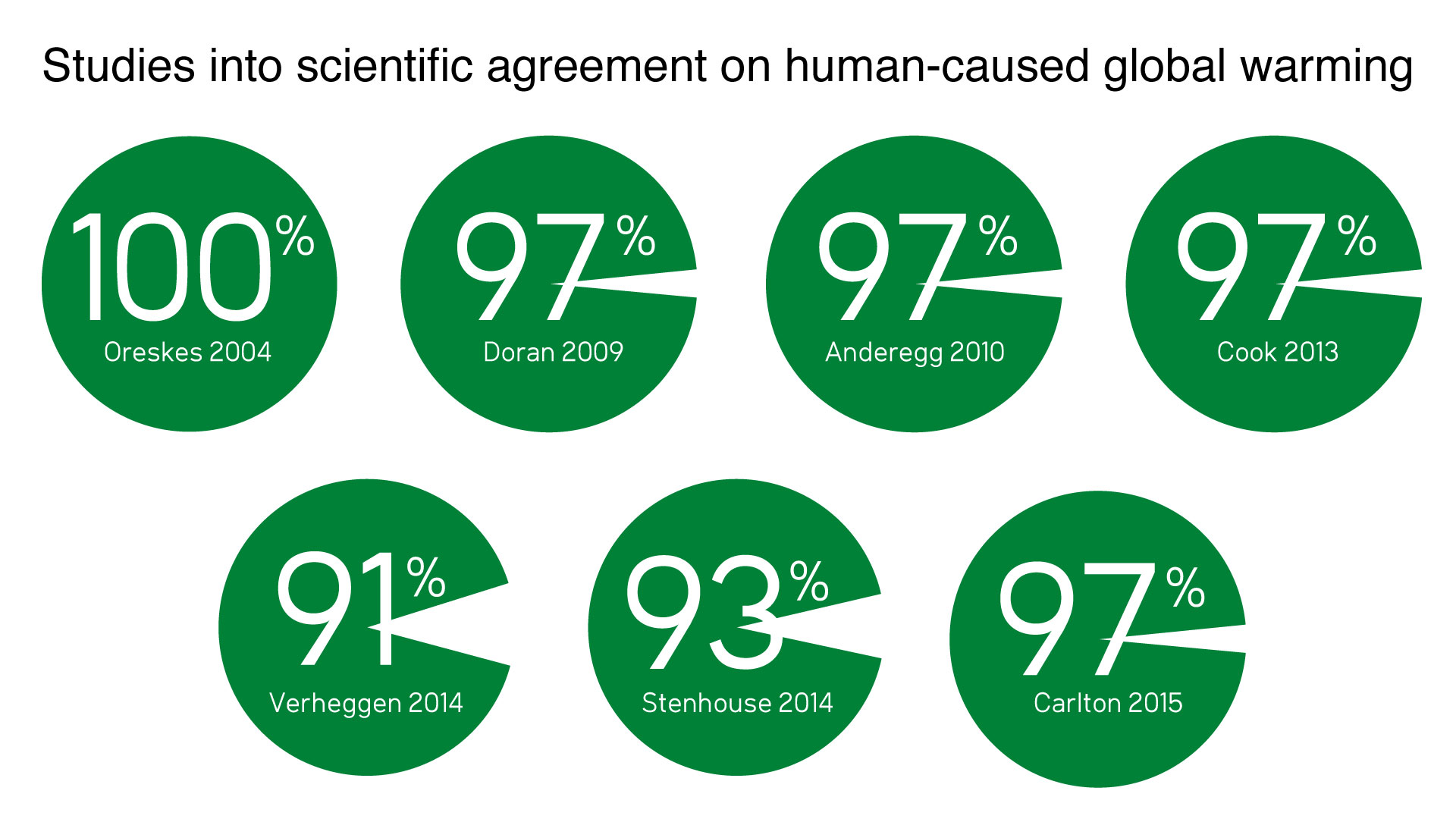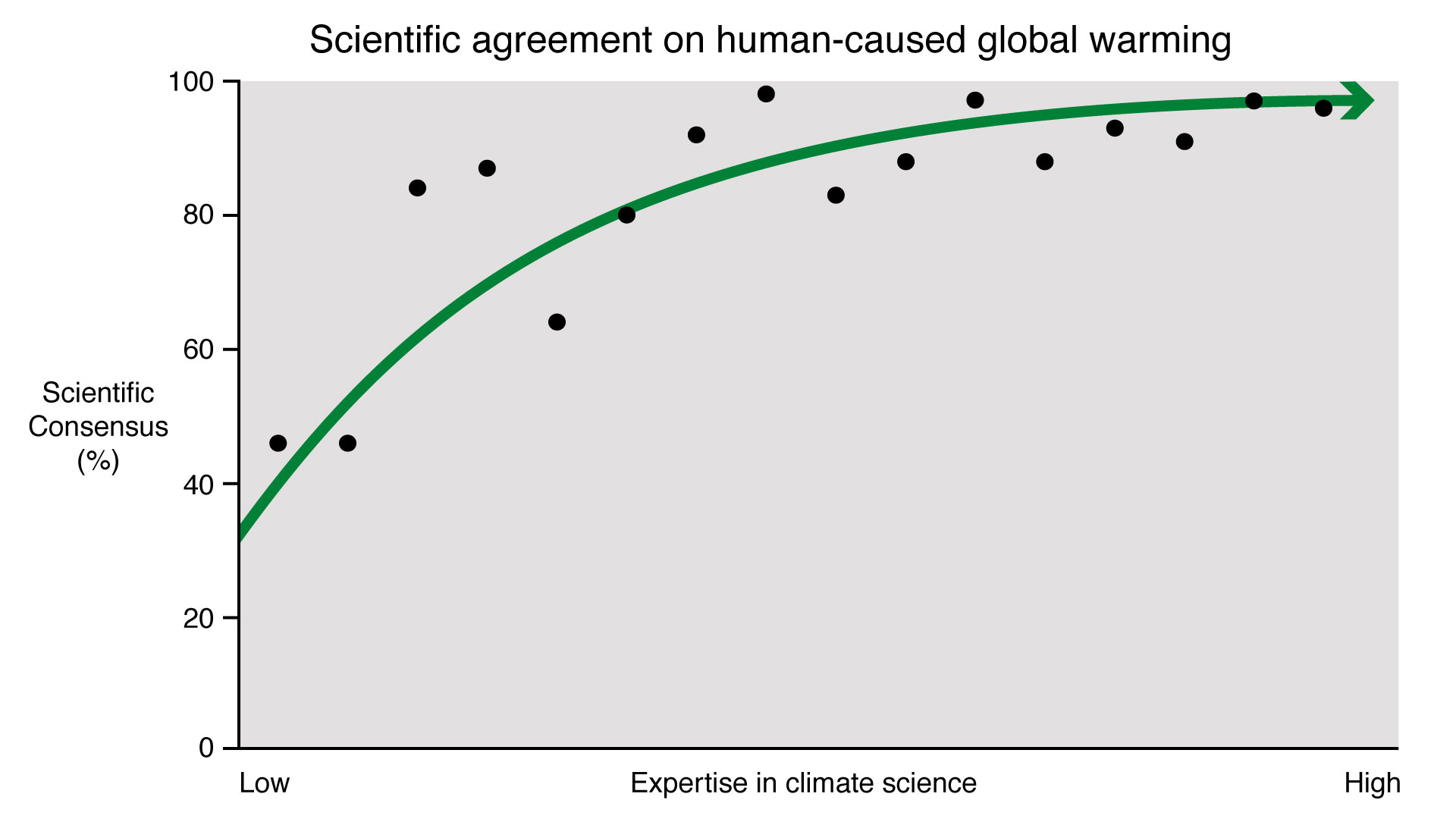 Arguments
Arguments
 Software
Software
 Resources
Comments
Resources
Comments
 The Consensus Project
The Consensus Project
 Translations
Translations
 About
Support
About
Support


Latest Posts
- Two-part webinar about the scientific consensus on human-caused global warming
- Sabin 33 #22 - How does waste from wind turbines compare to waste from fossil fuel use?
- Clean energy generates major economic benefits, especially in red states
- 2025 SkS Weekly Climate Change & Global Warming News Roundup #13
- Skeptical Science New Research for Week #13 2025
- Climate skeptics have new favorite graph; it shows the opposite of what they claim
- Sabin 33 #21 - How does production of wind turbine components compare with burning fossil fuels?
- China will need 10,000GW of wind and solar by 2060
- 2025 SkS Weekly Climate Change & Global Warming News Roundup #12
- Skeptical Science New Research for Week #12 2025
- Climate Fresk - a neat way to make the complexity of climate change less puzzling
- Sabin 33 #20 - Is offshore wind development harmful to whales and other marine life?
- Do Americans really want urban sprawl?
- 2025 SkS Weekly Climate Change & Global Warming News Roundup #11
- Fact brief - Is waste heat from industrial activity the reason the planet is warming?
- Skeptical Science New Research for Week #11 2025
- Visualizing daily global temperatures
- Sabin 33 #19 - Are wind turbines a major threat to wildlife?
- The National Hurricane Center set an all-time record for forecast accuracy in 2024
- 2025 SkS Weekly Climate Change & Global Warming News Roundup #10
- Fact brief - Is Greenland losing land ice?
- The Cranky Uncle game can now be played in 16 languages!
- Skeptical Science New Research for Week #10 2025
- Climate Adam: Protecting our Planet from President Trump
- Sabin 33 #18 - Can shadow flicker from wind turbines trigger seizures in people with epilepsy?
- Cuts to U.S. weather and climate research could put public safety at risk
- 2025 SkS Weekly Climate Change & Global Warming News Roundup #09
- Fact brief - Are high CO2 levels harmless because they also occurred in the past?
- Skeptical Science New Research for Week #9 2025
- Is CO2 plant food? Why are we still talking about this?
Archived Rebuttal
This is the archived Basic rebuttal to the climate myth "There is no consensus". Click here to view the latest rebuttal.
What the science says...
|
97% of climate experts agree humans are causing global warming. |
Science achieves a consensus when scientists stop arguing. When a question is first asked – like ‘what would happen if we put a load more CO2 in the atmosphere?’ – there may be many hypotheses about cause and effect. Over a period of time, each idea is tested and retested – the processes of the scientific method – because all scientists know that reputation and kudos go to those who find the right answer (and everyone else becomes an irrelevant footnote in the history of science). Nearly all hypotheses will fall by the wayside during this testing period, because only one is going to answer the question properly, without leaving all kinds of odd dangling bits that don’t quite add up. Bad theories are usually rather untidy.
But the testing period must come to an end. Gradually, the focus of investigation narrows down to those avenues that continue to make sense, that still add up, and quite often a good theory will reveal additional answers, or make powerful predictions, that add substance to the theory.
So a consensus in science is different from a political one. There is no vote. Scientists just give up arguing because the sheer weight of consistent evidence is too compelling, the tide too strong to swim against any longer. Scientists change their minds on the basis of the evidence, and a consensus emerges over time. Not only do scientists stop arguing, they also start relying on each other's work. All science depends on that which precedes it, and when one scientist builds on the work of another, he acknowledges the work of others through citations. The work that forms the foundation of climate change science is cited with great frequency by many other scientists, demonstrating that the theory is widely accepted - and relied upon.
In the scientific field of climate studies – which is informed by many different disciplines – the consensus is demonstrated by the number of scientists who have stopped arguing about what is causing climate change – and that’s nearly all of them.
Authors of seven climate consensus studies — including Naomi Oreskes, Peter Doran, William Anderegg, Bart Verheggen, Ed Maibach, J. Stuart Carlton, and John Cook — co-authored a paper that should settle this question once and for all. The two key conclusions from the paper are:
1) Depending on exactly how you measure the expert consensus, it’s somewhere between 90% and 100% that agree humans are responsible for climate change, with most of our studies finding 97% consensus among publishing climate scientists.
2) The greater the climate expertise among those surveyed, the higher the consensus on human-caused global warming.
Expert consensus results on the question of human-caused global warming among the previous studies published by the co-authors of Cook et al. (2016). Illustration: John Cook. Available on the SkS Graphics page
Scientific consensus on human-caused global warming as compared to the expertise of the surveyed sample. There’s a strong correlation between consensus and climate science expertise. Illustration: John Cook. Available on the SkS Graphics page
Expert consensus is a powerful thing. People know we don’t have the time or capacity to learn about everything, and so we frequently defer to the conclusions of experts. It’s why we visit doctors when we’re ill. The same is true of climate change: most people defer to the expert consensus of climate scientists. Crucially, as we note in our paper:
Public perception of the scientific consensus has been found to be a gateway belief, affecting other climate beliefs and attitudes including policy support.
That’s why those who oppose taking action to curb climate change have engaged in a misinformation campaign to deny the existence of the expert consensus. They’ve been largely successful, as the public badly underestimate the expert consensus, in what we call the “consensus gap.” Only 16% of Americans realize that the consensus is above 90%.
Updated on 2016-05-08 by BaerbelW.
THE ESCALATOR

(free to republish)


























































